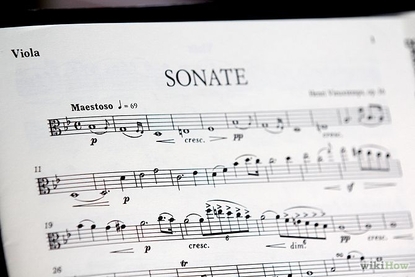|
FACT: Some of the greatest musicians do NOT know how to read music. There are many high caliber musicians who do not even know how to read standard music notation. Some of which include Elvis, Jimi Hendrix, Eric Clapton, all four Beatles, and many many more. Even modern songs developed without standard sheet music still fit all of the aspects of what makes music what it is. Even if composed on a computer, it still has rhythm, a chord progression, and a melody. Being able to understand music notation is no longer as necessary to write a song due to the progression of technology. So, learning to read music notation is not entirely necessary in becoming a top level musician, but even still any accredited music program requires understanding of music notation. Why is that? Why is Note Reading a Standard? Well, ever since the piano was created, sheet music was the standard for recording and playing music. Obviously there were no computers then, so the options were limited to sheet music and learning by ear. Sheet music is such a tradition that it is seen as blasphemy by some to not learn it. Sheet music is fairly effective at recording the intentions of the composer, but lacks freedom of expression in most cases. Reading sheet music is similar to reading a passage in a book. You may gain a better idea of sentence structure, but lacks the actual construction of ideas. How do you speak music? Well by improvising of course. Improvisation allows a musician to take what they have learned and express themselves by creating a song of their own. If you are a poet, you don't want to just read the poetry of others, but you want to develop your own poems. By improvising, musicians are developing their own music language skills rather than just reciting notes. Even though sheet music is still common practice; electronics, rote learning, improvisation and other forms of music expression are welcomed more and more. Musicians that don't know how to read music shouldn't be looked down upon since the more people that can participate in music, the better. There are Benefits to Multiple Approaches! I teach note reading since as mentioned above is a standard in many music schools around the world. Being able to describe topics at the piano and on paper gives me more tools to explain that topic to a student. Reading music is also useful in terms of sharing music across different instruments. For example, a piano player (who doesn't know guitar) writes a song with a guitar part. That piano player hands that music to the guitar player and so long as the guitar player can read music notation, the song can be played even though the piano player has little knowledge of guitar. Now, keep in mind that note reading shouldn't be the only thing a student should be exposed to. Students should be taught to read music, theory, rhythm, how to improvise and many other topics to ensure a thorough competency of music. You can be a great musician without being able to read sheet music but.. it really depends on YOU. How you internalize music, how you learn, how you visualize information, and what kind of learning style you have will determine which method works best for you. You may have trouble reading music but might excel at listening and possess an innate understanding of music. Of course you may not have such refined listening skills and may prefer the visualization of music notation. Try out many approaches to see what works for you. Stay Connected to LessonsOnTheWeb and Learn Much More!
|
AuthorMost blogs written by Archives
June 2020
Categories
All
|


 RSS Feed
RSS Feed